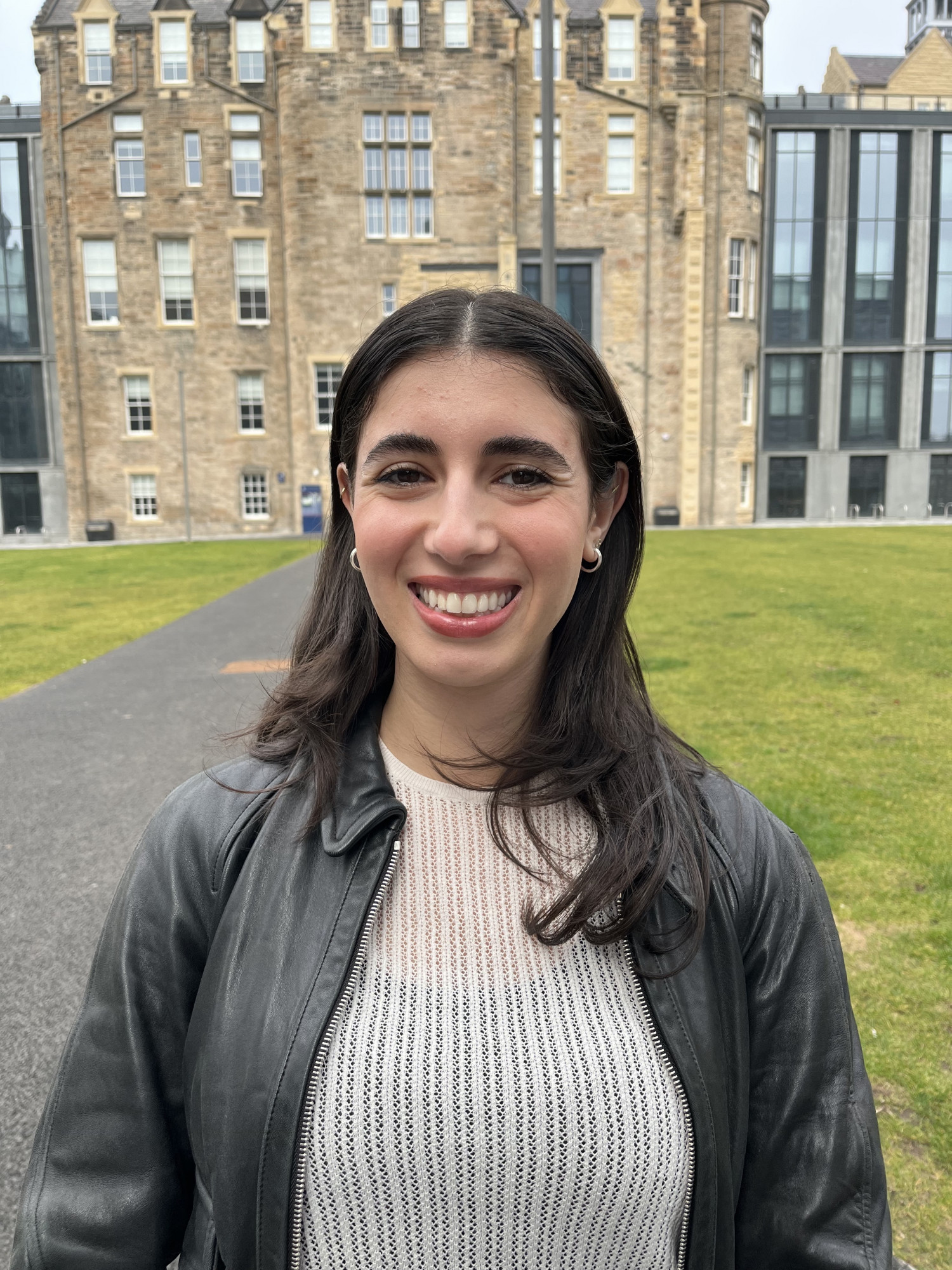Zoe Halem
 Why did you decide to study at the University of Edinburgh? Where did your interest in science come from?
Why did you decide to study at the University of Edinburgh? Where did your interest in science come from?
I became interested in astrobiology during my undergraduate degree where I studied earth and environmental science. My undergraduate dissertation focused on extremophile organisms that survive in the most hostile environments on Earth, with implications for the existence and survival of life on other planets.
I knew I wanted to continue in the field, and Edinburgh’s Astrobiology and Planetary Sciences MSc programme, the first astrobiology MSc at the time, was the perfect next step. The programme offered a unique blend of scientific disciplines and the opportunity to advance my lab and research skills. For me, it was the perfect step to pursue my interest in space and life sciences.
Science has always been a part of my life. My Dad is a physicist, and I grew up helping him maintain his WWII aircraft. My Grandfather was an engineer at Cape Canaveral and worked on NASA spacecraft in the early days of space exploration. His work inspired my Father’s passion for mechanics and flight, which in turn shaped my own fascination with science, technology and space.
How did you get where you are?
I gained experience with spectroscopy throughout my undergraduate and master’s degrees, which led to my current role as the Remote Sensing Technician at the NERC Field Spectroscopy Facility. In my undergraduate research, I used Raman spectroscopy to study microbial pigments in Mars-analogue environments, exploring how life can persist under extreme conditions. In my master’s, I used infrared spectroscopy to analyse a heterogeneous dataset of samples we may find on Mars, trying to distinguish biogenic from abiogenic spectra.
I joined the NERC Field Spectroscopy Facility (FSF) just a few months after graduating from Edinburgh. The facility is a lending library of field spectroscopic instrumentation that is freely accessible to the UK academic community. We house a variety of spectroscopic instruments, with ground-based and UAV capabilities. The academics we work with, our loan users, work in diverse scientific fields, ranging from ecologists to atmospheric chemists and even astrobiologists. My role at the facility includes flying UAVs, preparing equipment and training loan users, understanding remote sensing data acquisition, processing data in numerous softwares and more.
One of the highlights of my career so far has been the fieldwork and travel I get to do in my current role. Just a few months ago I went to Norway for a UAV and plant phenotyping workshop and participated in data collection for a drought stress detection project. I really enjoy staying connected to academia and contributing to meaningful scientific questions.
What did you gain from your time at the University and were there any experiences during your time which particularly helped prepare you for life after graduation?
My degree has taught me to work to deadlines and helped me to improve my time management. I attended weekly meetings with the Paleobiology group while writing my dissertation, bringing updated results and data analysis each week.
I was required to present my work, discuss papers in tutorials, plus attend weekly meetings, all helping me to gain critical thinking skills and improve my public speaking ability. This has massively helped in the context of my current job, where I actively ask questions and learn, and communicate with loan users to better understand their science questions in fields I am not an expert in.
Through meeting with a careers service advisor and attending events where companies came to speak to current students about possible opportunities post-graduation, I learned to really put myself out there, even for roles I was not sure I was qualified to do. Making connections through talking to people is a great way of finding your next steps. The interdisciplinary nature of my degree specifically opened doors in numerous fields, paving the way for a variety of career paths.
Do you have any highlights or a favorite memory from your time at the school of physics and astronomy or the University of Edinburgh?
My favourite memory is my dissertation presentation, where I got to present my in-depth research and take questions in front of my peers and professors. This was a rewarding experience, as it allowed me to showcase my work from start to finish. Although I was nervous to face detailed questions from my peers, when I received those questions, my ability to discuss my research at a high level of detail demonstrated my mastery of the subject. The programme was small, so I got to work very closely with my classmates and friends.
What do you wish you had known as a student?
I wish I had known that it is okay to not have everything figured out. You do not need to choose a definitive career path early on—interests evolve, and clarity comes with time and experience.
As a student, I often stressed about what to do after graduation. I saw application deadlines pass for jobs I was not quite sure I was even interested in, yet I felt like I was missing out. I questioned whether I was ready to pursue a PhD and continue in academia, whether I wanted to become a lab technician, or even return to environmental science and try consulting. I also worried that my limited industry experience outside of academia would hold me back.
Now, a year after completing my masters, I have learned that you do not need to have your entire career mapped out before you graduate. As you study, grow and build relationships, you will find that new opportunities and career paths will naturally arise.

